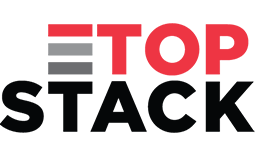These Are The Qualities You Need to Be an Amazing Leader

Companies are looking for leaders. You don’t need to be a CEO to exhibit leadership qualities that make you stand out to future employers. What are the qualities that employers look for in their future leaders and how do you measure up?
Top Leadership Qualities for 2024
What makes a leader? We believe that the workplace can hone leadership skills and that tomorrow’s leaders are within the ranks of today’s front line employees. Employers know this, too; that’s why top employers are always on the hunt for employees that they can count on to lead teams. But how can you know if you have the leadership skills that make you stand out to these employers?
Some of the best qualities include:
- Empathy
Understanding your coworkers and doing things that help them succeed is one way that empathy manifests in the workplace. Being a good listener and taking time to understand the needs of your boss and coworkers makes you empathetic and understanding. - Focus
Having the single-minded focus to achieve a vision or even a set of tasks is an important skill that leaders exhibit. If you can see the prize, chart a path toward it, and then work hard to achieve it – it’s the kind of focus employers look for in future leaders. - Integrity
Real leaders have integrity in their dealings with people and Integrity means that you try to always do the right thing and are respectful of others in the workplace and even in your life. - Mentorship
How much time do you spend helping others? That quality of mentorship is a kind of give-back to your coworkers, but also to your friends and family as you make your way through life. - Presence
Do people gravitate toward you? That presence is a quality evident in some of the greatest leaders of all time, and it means that your coworkers trust and will follow your lead. - Self-Improvement
If you’re the kind of employee that always has goals to improve yourself or those around you, employers want to hear about it. The best leaders look around constantly to improve the organization and those within it. The best bosses work hard to support their team in growing and learning new skills. - Support
Positivity in the workplace is an amazing skill set that can change the course of business. The best leaders lift others, supporting them in a goal or mission. It can inspire those around us to work harder to achieve goals and create change that can ripple across an organization. - Transparency
Honesty is the human quality that translates to transparency in the workplace. It’s a form of credibility that takes responsibility and ownership for mistakes. Transparency is sincere, consistent, and it lets others know they can trust you. - Vision
Leaders often have a clear-sighted view of what’s ahead and how to get there. They can communicate this vision and have a passion for the execution.
Leadership is crucial to every job, and employers always have their eyes out for individuals that exhibit these skills. If you believe you exemplify these characteristics, Top Stack, and the employers we represent, would like to speak with you. Contact us today.
















